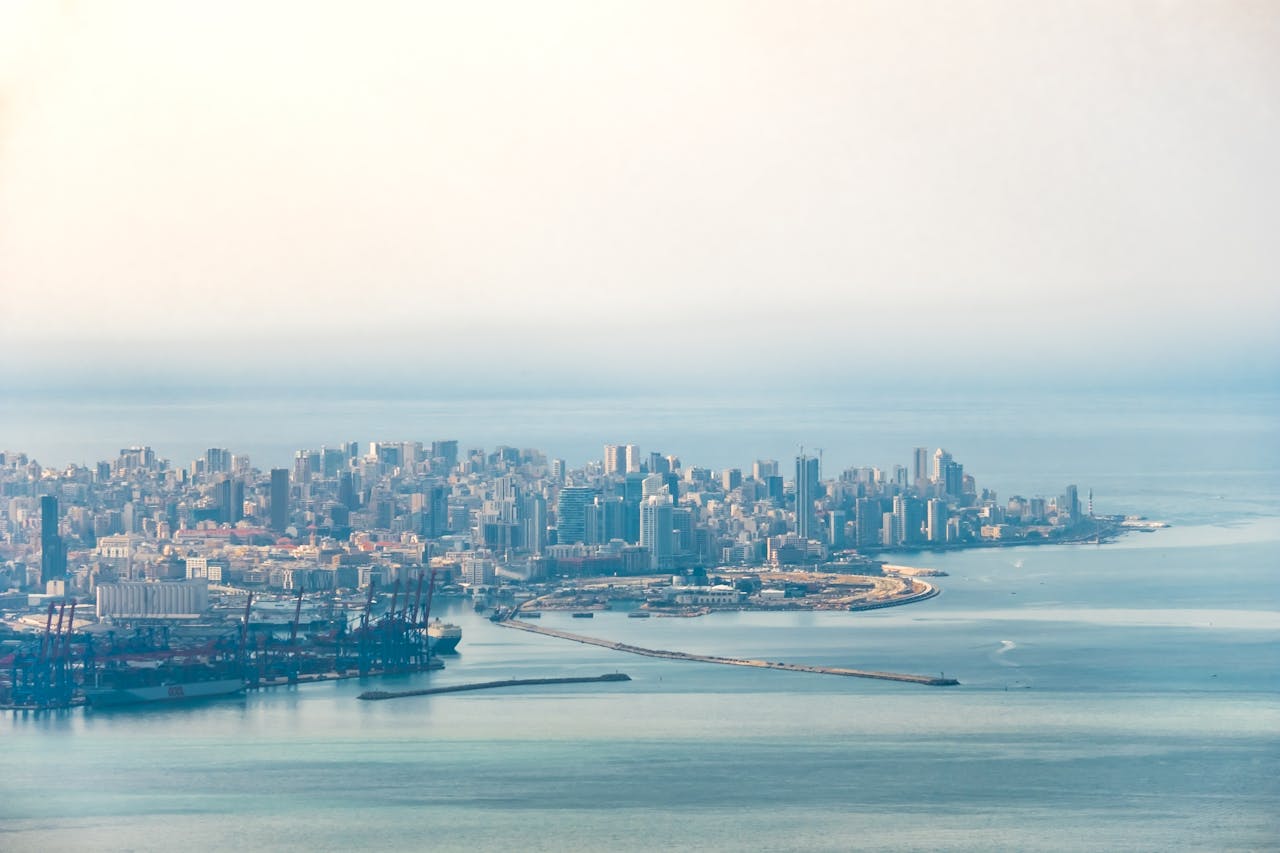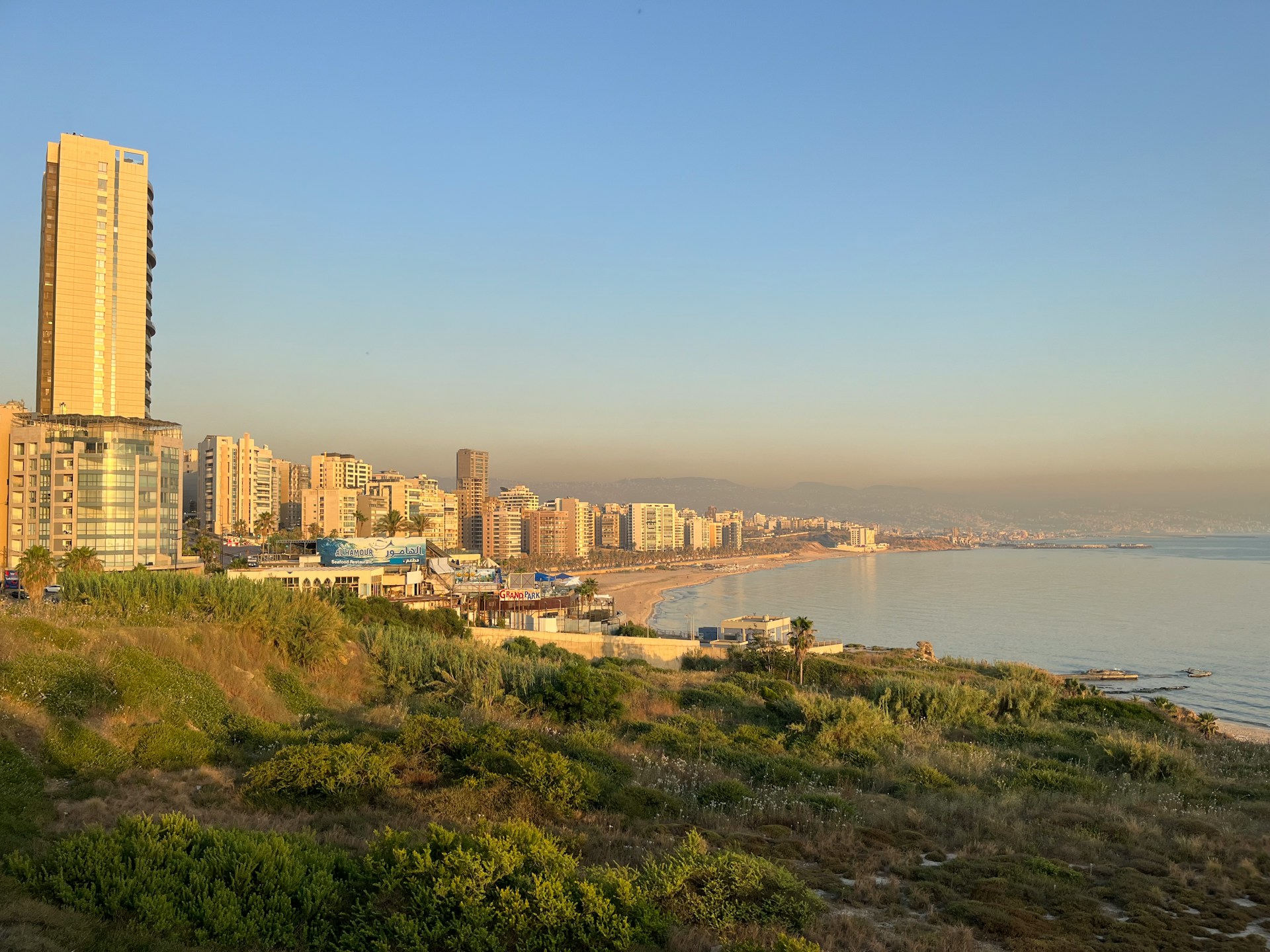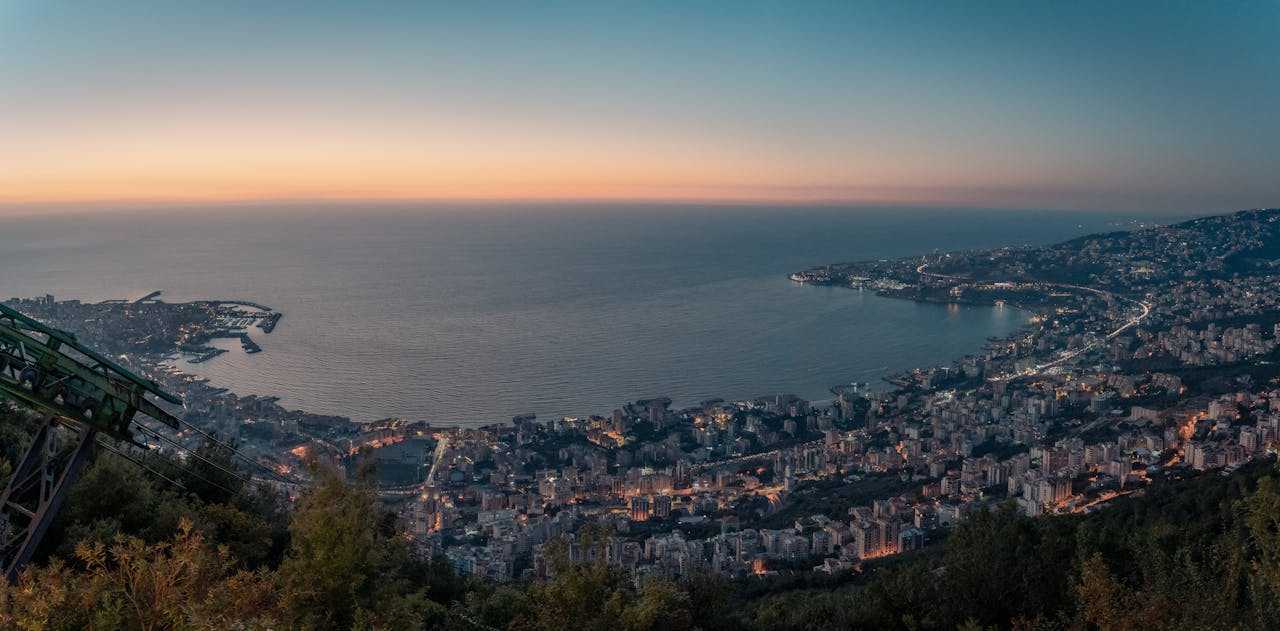An online introductory consultation on Lebanon’s Integrated Coastal Zone Management (ICZM) Strategy and ICZM Law preparation process was organized on April 19th 2024, by the Priority Actions Programme Regional Activity Centre (PAP/RAC), the partner leading these initiatives.
The 2015 Draft ICZM Strategy of Lebanon is currently being revised by the Lebanese Ministry of Environment (MoE) with the assistance of PAP/RAC, as part of GEF UNEP/MAP MedProgramme and particularly its Child Project 2.1 (CP 2.1) entitled “Mediterranean Coastal Zone: Climate Resilience, Water Security and Habitat Protection”. In the framework of these initiatives the Lebanese Coastal Information Platform has been launched to provide comprehensive information and knowledge that will contribute to coastal management and sustainable development.

Lebanon has about 220 km of coastline, largely made up of sedimentary rocks, loose sands or gravel.
The ICZM Strategy preparation: a collaborative process
During the consultation, Eng. Adel Yacoub representing the MoE and Ms. Daria Povh Skugor, PAP RAC Senior Programme Officer informed relevant stakeholders and partners about the importance of implementing an ICZM Strategy, which is essential for enhancing water security, human and ecosystem health and climate change resilience of the country’s coastal areas. They referred to the steps undertaken by Lebanon since 2002 towards ICZM planning and provided details about the status and progress of the activity, with a focus on the Diagnostic Analysis Report (DAR), its structure and the preliminary recommendations that are currently developed by the expert team.
Participants were also informed about the efforts undertaken by the various executing partners of CP 2.1, namely PAP/RAC, Plan Bleu RAC, UNESCO IHP and GWP-Med, who have joined forces to produce long lasting impacts in coastal zone management and ensure better integration of hydrological, geological and environmental sciences with land use and water resources planning following a source-to-sea approach.
Specifically,
- Plan Bleu is implementing the Climagine Participatory process that aims at collecting input from stakeholders and offering the opportunity to co-plan the coastal zone while also taking into account climate change.
- UNESCO IHP is promoting conjunctive surface water and groundwater management in order to protect coastal groundwater related ecosystems.
- GWP-Med is preparing a Water-Energy-Food-Ecosystems (WEFE) Nexus Assessment that suggests solutions for integrated natural resources management at the watershed level and contributes to coastal zone management through specific indicators addressing the linkages between land, water, delta, estuary, coast, nearshore and marine ecosystems. These activities are carried out under MedProgramme Child Project 2.2 (CP 2.2) fully dedicated to exploring the opportunities offered by the WEFE Nexus approach for a more effective natural resources governance and management.

A high percentage of the population live by the coast which suffers from a number of challenges including high levels of development.
Inter-sectoral coordination is key for achieving ICZM goals
Participants discussed opportunities for collaboration of various Lebanese authorities so as to ensure effective protection of the coastal zone, the need for a clear timeframe of implementation and proposed that additional data collection and monitoring systems be put in place. They highlighted the importance of stakeholder involvement in developing a practical and realistic Strategy as well as the need to include all directly and non-directly related coastal zone authorities and directorates to the process.
Following the fruitful discussion and exchange of views Eng. Adel Yacoub (MoE) acknowledged also the need for collaboration among the present stakeholders to enhance integration and strengthen coordination and alignment among all institutions. He stressed that consensus among them will ultimately benefit the country and invited the public institutions to join forces and support the Project’s goals. To this end, Mr. Yacoub emphasized the importance of their contribution in the ICZM Inter-Ministerial Group from the beginning, to design an implementable Strategy and secure possible funding for priority measures and activities.
Ms. Barbara Tomassini, Senior Programme Officer at GWP-Med updated participants on the process and the efforts to promote collaboration across the Water, Energy, Food and Ecosystems sectors in a source-to-sea continuum together with Nexus related Lebanese ministries. In this process and in an effort to facilitate synergies, add value to impacts and maximize available resources, PAP/RAC and GWP-Med have worked together to also establish linkages between the WEFE Inter-Ministerial Group, led by the Lebanese Ministry of Energy and Water and responsible for guiding the WEFE Nexus Policy Dialogue in Lebanon in the framework of MedProgramme, and the newly established ICZM Inter-Ministerial Group.
With key institutional representatives actively participating in both groups, alignment will be achieved on an operational level, fostering collaboration across sectors. As a result, through promotion of synergies and identification of solutions, climate resilience, water security and habitat protection will be enhanced leading to overall environmental security and improvement of health and livelihoods of coastal populations in a sustainable and equitable manner.
For more on the process of ICZM Protocol being integrated into National Law see here.
